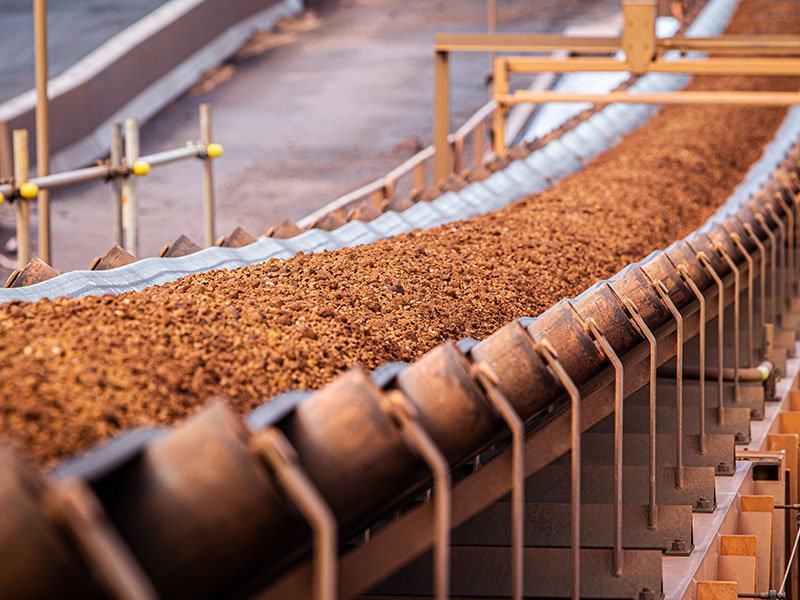The official visit of Crown Princess Victoria and Prince Daniel of Sweden to Australia, accompanied by Sweden’s Foreign Trade minister Johan Forssell, could not have been better timed as debate heats up on the government’s proposed National Reconstruction Fund.
At a reception at Government House in Sydney, NSW Governor Margaret Beazley highlighted the important historic ties between the two countries, and the depth of our relationship.
Minister Forssell also acknowledged the long-standing partnership, which he echoed in his opening remarks at the Sweden-Australia High-level Sustainable Mining Summit.
The minister made much of our similarities, including the important role the mining sector has played in the history of both our nations, and its ongoing contribution to our prosperity.
He also emphasised the critical role of the mining sector has in tackling the challenge of climate change.

Innovation and specialisation, he said, is “a key component of staying competitive and relevant,” and that “today, Sweden is at the global forefront of innovation-driven extractive mining, as well as the development of related technology and equipment.”
Sweden has a long mining tradition spanning over 1000 years. Mr Forssell says the evolution of Sweden’s mining industry has been from “a sector relying upon manual labour working in harsh conditions to an automated, technologically advanced, prosperous and safe industry.”
When it comes to ambition for the resources sector, Sweden looks at much more than just the valuable dirt it can put on a boat to foreign markets.
Admittedly, I may have some bias here, having spent time in the Swedish town of Kiruna and working with LKAB and Boliden in my previous role with ABB.
Now, as part of an Industry Growth Centre program, I use the Swedish Mining Clusters as an example for Australia to learn from, as we try to do more onshore.
Sweden might not leap into mind when we talk mining, but the companies that have made their country great are common names to the mining industry.
Companies like Sandvik, Volvo, Epiroc, Ericsson, Alfa Laval, Atlas Copco and many more are globally recognised as industry leaders.
These are the industrial technology companies that make our sector safe, sustainable, and profitable.
More importantly, Sweden is also a leader in the metrics that matter.
In sustainability, Sweden and the Nordic countries dominate the global climate leadership ranks thanks to their commitment to governance, innovation, human capital and environment. Sweden is a global leader in decarbonisation, with targets to be a net zero economy by 2045.
So, what is the lesson for Australia?
In 2021, Copenhagen Economics undertook an evaluation of the market to better understand the role of mining in the Swedish economy.
The Swedish Mining Clusters were more than just a commodity market in Sweden. In fact, the report (here) found nine of Sweden’s top 20 companies by turnover were industrial partners to the mining industry
Mr Forssell advised us of the importance of innovation, and the need to embrace new technology as being at the heart of the climate change challenge.
Sweden invests in the industrial technology companies of its local economy, supporting them to become the global powerhouses they are today.
They focus on more than just the miners, not relying solely upon natural resources as a competitive advantage.
Sweden is proof that investment in technology and capability will create a long-term, sustainable industry beyond the commodities themselves. This is more than just expanding downstream.
In contrast, Australia is running out of time to capture the benefits created by our local mining industry. Our local miners have invested in technology, in innovation, and Australian science, engineering and know how. Australia has so much potential, stranded in the supply chains of our world leading resources sector.
The National Reconstruction Fund could be the platform we need to do more onshore.
Success would be when an Australian visit to Sweden is dominated by the presence of Australian technology companies, like the Swedish companies here in our market today.
Success is when the mining industry conferences held in Australia become more than a swap meet for global technology companies.
Success is when our local economy becomes more sophisticated than just an export market.
We must support Australia as a place to invest, grow and commercialise innovation. We have the capability to become much more than the world’s safest, most efficient, and most sustainable quarry.
As political discussions continue around investing in areas of strategic national importance, the time is now.
Adrian Beer is the Chief Executive Officer at METS Ignited, the federal Industry Growth Centre focused on the Mining Equipment, Technology and Services sector.
Do you know more? Contact James Riley via Email.

